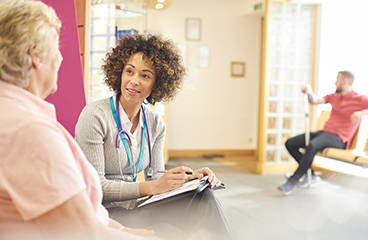
How can you prepare before surgery?
You can do some things that will help you safely prepare for surgery.
- Understand exactly what surgery is planned.
You should know the risks, benefits, and other options.
- Tell your doctors ALL the medicines, vitamins, supplements, and herbal remedies you take.
Some of these can increase the risk of bleeding. Or they may interact with anesthesia.
- Follow your doctor's instructions about which medicines to take or stop before your surgery.
- You may need to stop taking some medicines a week or more before surgery.
- If you take aspirin or some other blood thinner, be sure to talk to your doctor.
- Follow any other instructions your doctor gave you.
- If you have an advance directive, let your doctor know, and bring a copy to the hospital.
It may include a living will and a durable power of attorney for health care. It lets your doctor and loved ones know your health care wishes. If you don't have one, you may want to prepare one.
How can you prepare on the day of surgery?
Here are some tips about what to do at home before you leave for your surgery.
- If your doctor told you to take your medicines on the day of surgery, take them with only a sip of water.
- Follow the instructions about when to stop eating and drinking.
If you don't, your surgery may be canceled.
- Follow your doctor's instructions about when to bathe or shower before your surgery.
- Don't use lotions, perfumes, deodorants, or nail polish.
- Do not shave the surgical site yourself.
- Take off all jewelry and piercings.
- Take out contact lenses, if you wear them.
- Have a picture ID ready to take with you.
Your ID will be checked before your surgery.
- Know when to call your doctor.
Call your doctor if you:
- Become ill before surgery.
- Need to reschedule.
- Have changed your mind about having the surgery.
What happens before surgery?
Here are some things you can expect to happen before your surgery.
- Your picture ID will be checked.
- The area of your body that needs surgery is often marked to make sure there are no errors.
- You will be kept comfortable and safe by your anesthesia provider. The anesthesia may make you sleep. Or it may just numb the area being worked on.
What happens when you are ready to go home?
Be sure you have someone drive you home. Anesthesia and pain medicine make it unsafe for you to drive. You will get instructions about recovering from your surgery. This is called a discharge plan. It will cover things like diet, wound care, follow-up care, driving, and getting back to your normal routine.
Follow-up care is a key part of your treatment and safety. Be sure to make and go to all appointments, and call your doctor if you are having problems. It's also a good idea to know your test results and keep a list of the medicines you take.
Where can you learn more?
Go to http://www.healthwise.net/patientEd
Enter Q270 in the search box to learn more about "Learning About How to Prepare for Surgery".
Current as of: October 1, 2025
Author: Ignite Healthwise, LLC Staff
Clinical Review Board
All Ignite Healthwise, LLC education is reviewed by a team that includes physicians, nurses, advanced practitioners, registered dieticians, and other healthcare professionals.

